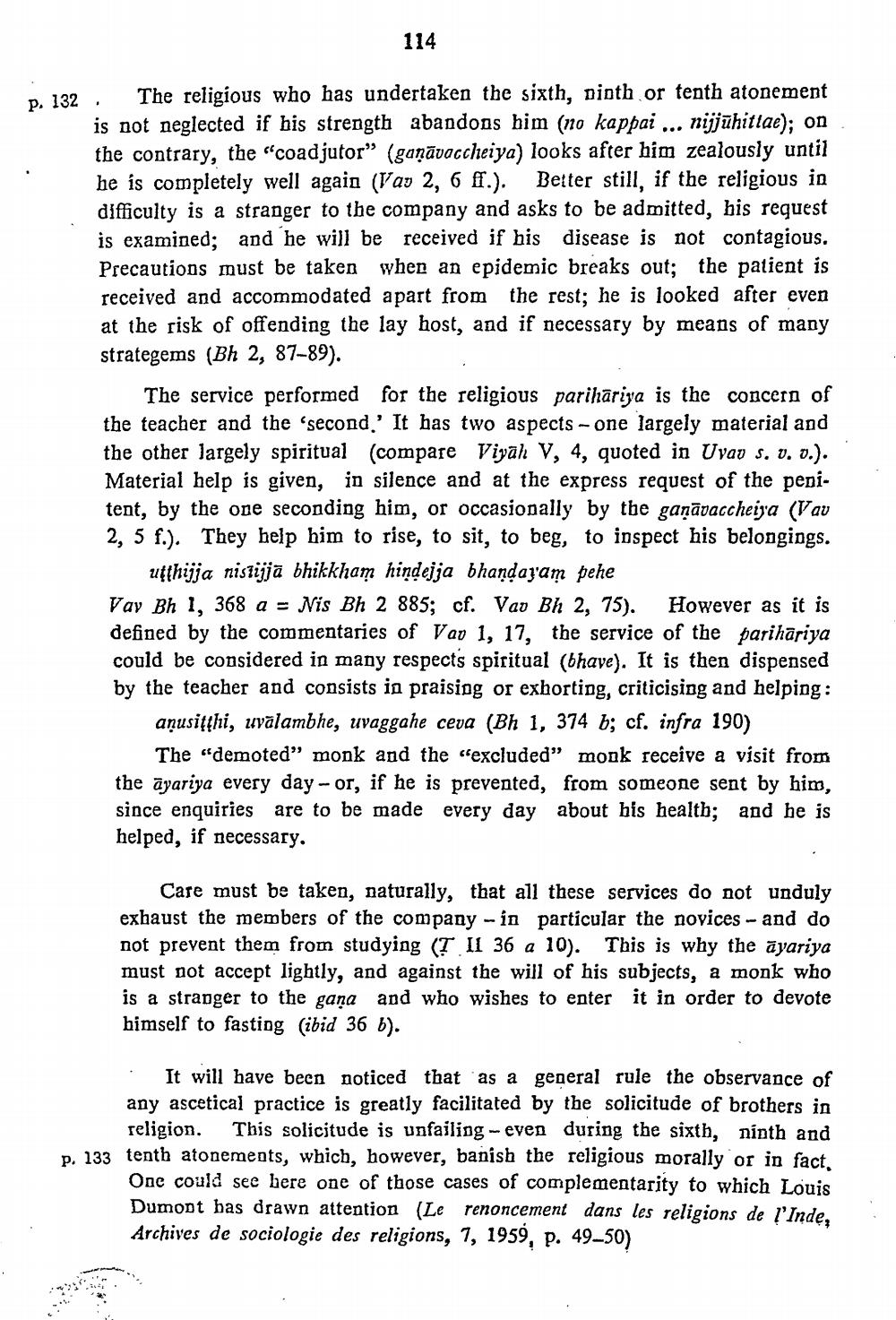________________
114
p. 132. The religious who has undertaken the sixth, Dipth or tenth atonement
is not neglected if his strength abandons him (110 kappai ... nijjūhittae); on the contrary, the "coadjutor" (ganāvaccheiya) looks after him zealously until he is completely well again (Vay 2, 6 ff.). Better still, if the religious in difficulty is a stranger to the company and asks to be admitted, his request is examined; and he will be received if his disease is not contagious. Precautions must be taken when an epidemic breaks out; the patient is received and accommodated apart from the rest; he is looked after even at the risk of offending the lay host, and if necessary by means of many strategems (Bh 2, 87-89).
The service performed for the religious parihariya is the concern of the teacher and the 'second' It has two aspects - one largely material and the other largely spiritual (compare Viyah V, 4, quoted in vav s. v. o.). Material help is given, in silence and at the express request of the penitent, by the one seconding him, or occasionally by the ganādaccheija (V av 2, 5 f.). They help him to rise, to sit, to beg, to inspect his belongings.
ufthijja niszijjā bhikkham hindejja bhandayam pehe Vay Bh 1, 368 a = Nis Bh 2 885; cf. Vao Bh 2, 75). However as it is defined by the commentaries of Vav 1, 17, the service of the parihariya could be considered in many respects spiritual (bhave). It is then dispensed by the teacher and consists in praising or exhorting, criticising and helping:
aņusiţthi, uvālambhe, uvaggahe ceva (Bh 1, 374 b; cf. infra 190)
The "demoted" monk and the “excluded" monk receive a visit from the āyariya every day- or, if he is prevented, from someone sent by him, since enquiries are to be made every day about his health; and he is helped, if necessary.
Care must be taken, naturally, that all these services do not unduly exhaust the members of the company - in particular the novices -- and do not prevent them from studying (T II 36 a 10). This is why the āyariya must not accept lightly, and against the will of his subjects, a monk who is a stranger to the gana and who wishes to enter it in order to devote himself to fasting (ibid 36 b.
• It will have been noticed that as a general rule the observance of any ascetical practice is greatly facilitated by the solicitude of brothers in
religion. This solicitude is unfailing - even during the sixth, ninth and p. 133 tenth atonements, which, however, banish the religious morally or in fact.
One could see here one of those cases of complementarity to which Louis Dumont has drawn attention (Le renoncement dans les religions de l'Inde, Archives de sociologie des religions, 7, 1959, p. 49–50)




